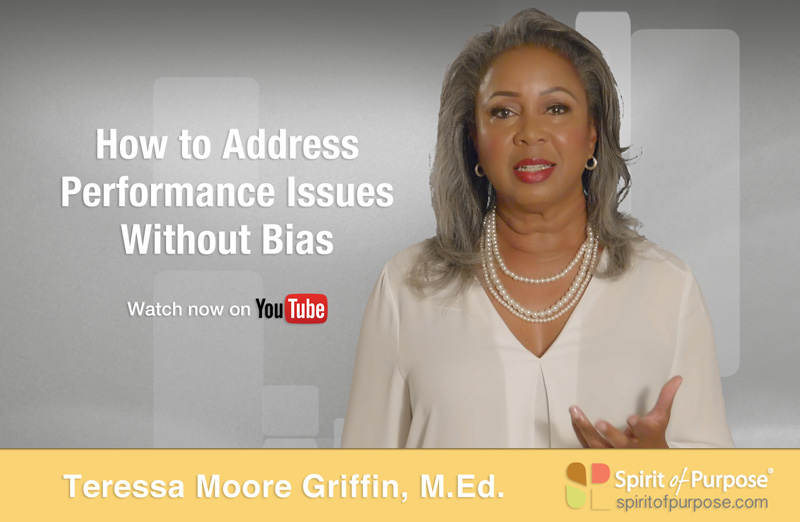VIDEO: How to Address Performance Issues Without Bias
Addressing performance issues is one of the most challenging aspects of managing people. The conversations are difficult, potentially explosive. Corrective action plans add another layer to your responsibilities and if performance doesn’t improve, a job is lost and moral is threatened.
The situation is not only complicated on the surface, but there are hidden forces at work that often go unrecognized. Our own biases can distort how we see the problem and how we ultimately deal with it. No matter how open-minded we believe we are, our experiences and things we’ve been exposed to influence how we discipline others.
Whether the concern is related to performance, attendance, attitude, appearance, or hygiene, these questions can help you guard against unconscious, unintentional personal bias. Ask yourself:
- Why do I see this as a problem? Does it diminish the individual’s effectiveness, or our team’s?
- Are their actions out of alignment with relevant performance metrics, company policy and practice, our cultural norms and standards of professionalism?
- Am I seeing the situation clearly? What am I missing? Is there an aspect of this issue that I’m blind to?
- If this were anyone else on the team, would I reach the same conclusion?
Next, ask yourself which course of the problem calls for:
- Is feedback sufficient?
- Is coaching more appropriate?
- Is this a personal matter that requires career or life counseling?
- Or, is the situation more serious? Is behavior change is warranted, or consequences follow? Consequences such as not supporting a promotion, delivering a written reprimand or pursuing termination.
Bias is built in to human nature. But through conscious choice and heightened self-awareness, we can overcome our biased tendencies. Choose to take the time to understand the full picture, make mindful decisions and take fair, appropriate action.
The right choices, well executed, can transform nearly any challenge.


